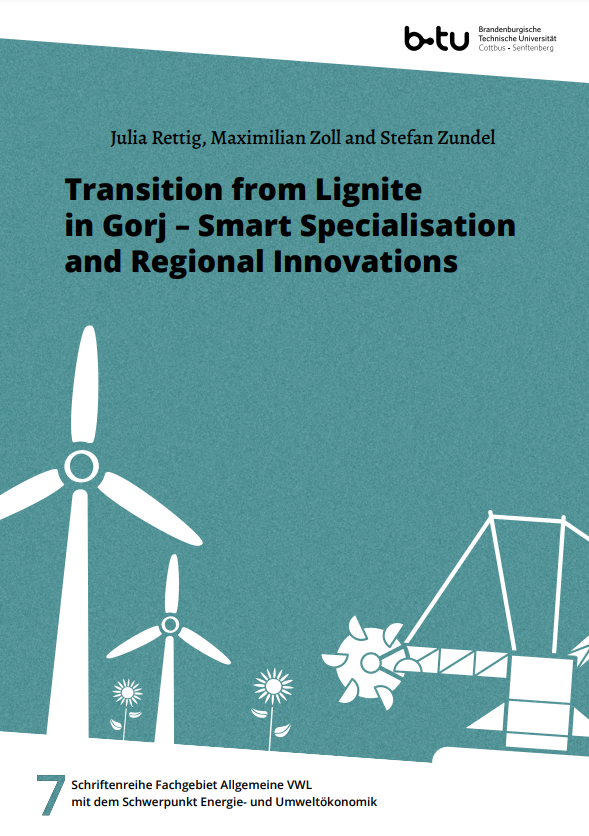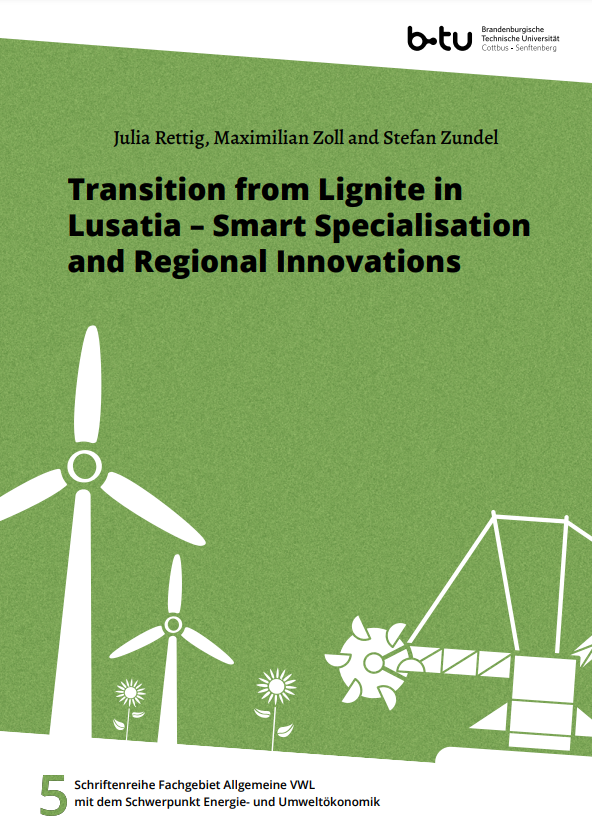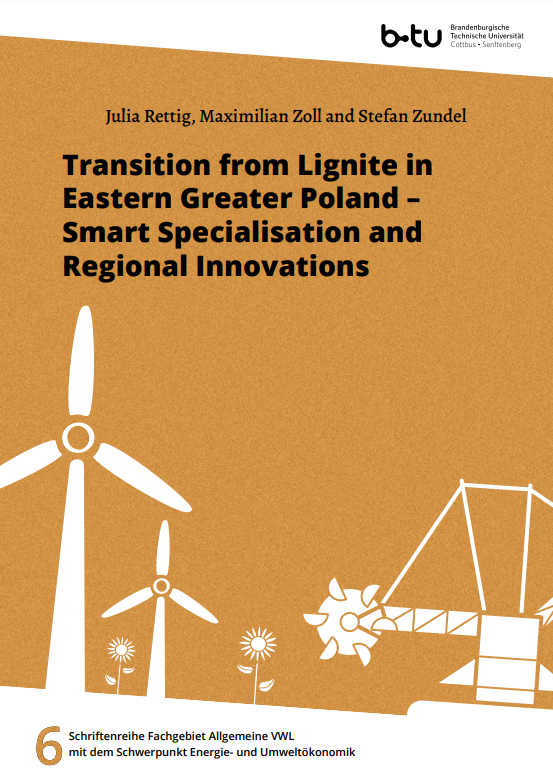English Publications by the Chair of General Economics with focus on Energy and Environmental Economics
Germany has decided to phase out coal mining and end coal-fired power generation. To ease the negative effects associated with the transition, the federal government is supporting Germany’s coal regions by making a total of € 40 billion in funding available. On top of this, a public-private contract between the government and the lignite industry worth € 4.35 billion was signed to grant compensation to lignite power plant operators.
Among the most severely impacted coal regions is the peripheral lignite region of Lusatia in Eastern Germany. Of the total € 40 billion available for addressing structural change in the impacted municipalities, € 18 billion have been granted to Lusatia alone. This amounts to the equivalent of € 2.2 million per person currently directly employed in Lusatia’s lignite sector or € 1.3 million per person indirectly employed. The local power generation and mining company LEAG has also been granted € 1.75 billion in compensation.
As a response, a plethora of scientific research is being generated concerning the transition from coal in Lusatia. Yet, many questions remain unaddressed as to how to spend the funding and what possible lessons can be learned from other coal-dependent regions. This English-language working paper series adds to its German counterpart, published by the Chair of General Economics with focus on Energy and Environmental Economics at the BTU Cottbus-Senftenberg. It attempts to answer a subset of questions related to the structural transition and contributes to the discourse for those who are willing to seize the structural transition as an opportunity and are ready to embark on the difficult journey ahead.
The following three reports draw upon findings conducted as part of the research within the “REBOOST – A Boost for Rural Lignite Regions” project with the financial support of EIT Climate-KIC (Reference: 200554). They discuss international coal phase-out and transition in three European lignite regions—Lusatia (Germany), Eastern Greater Poland (Poland), and Gorj (Romania). Each of these regions has relatively similar socio-economic characteristics and are, to varying degrees, economically dependent on coal. The debate in these papers centers around the coal transition in the context of smart specialization and regional innovation systems. Smart specialization is an important concept for peripheral or regions with low endogenous innovation potential, as it creates a focused path with clear research priorities accounting for existing regional strengths. Regional innovation systems view innovational as a learning process created through exchanges between actors within the regional economy in the field of research and development, such as firms interacting with universities. Each policy brief aims to shed light on barriers to an effective transition by assessing the regional innovation system and potential avenues for the smart specialisation of the regional economy to boost innovation for the post-carbon future.
Transition from Lignite in Lusatia – Smart Specialisation and Regional Innovations
Lusatia has a comparative advantage over the two other regions since structural change (Strukturwandel) and coal phase-out has been discussed within the region for a relatively long time. Resultingly, Lusatia has become a sort of test laboratory for a plethora of different approaches towards the transition... [weiterlesen]
Transition from Lignite in Eastern Greater Poland – Smart Specialisation and Regional Innovations
Eastern Wielkopolska’s potentials for smart specialisation and potential reshaping the RIS are examined in this policy brief. Eastern Wielkopolska is a lignite region located at the eastern periphery of the within Poland centrally located Wielkopolska Voivodeship. [weiterlesen]

Transition from Lignite in Gorj – Smart Specialisation and Regional Innovations
Relatedly, the RIS views innovational activity as learning created by interactions between many actors within the economy in research and development (R&D), such as firms interacting with universities. Within this policy brief, a regional overview of Gorj is... [weiterlesen]


